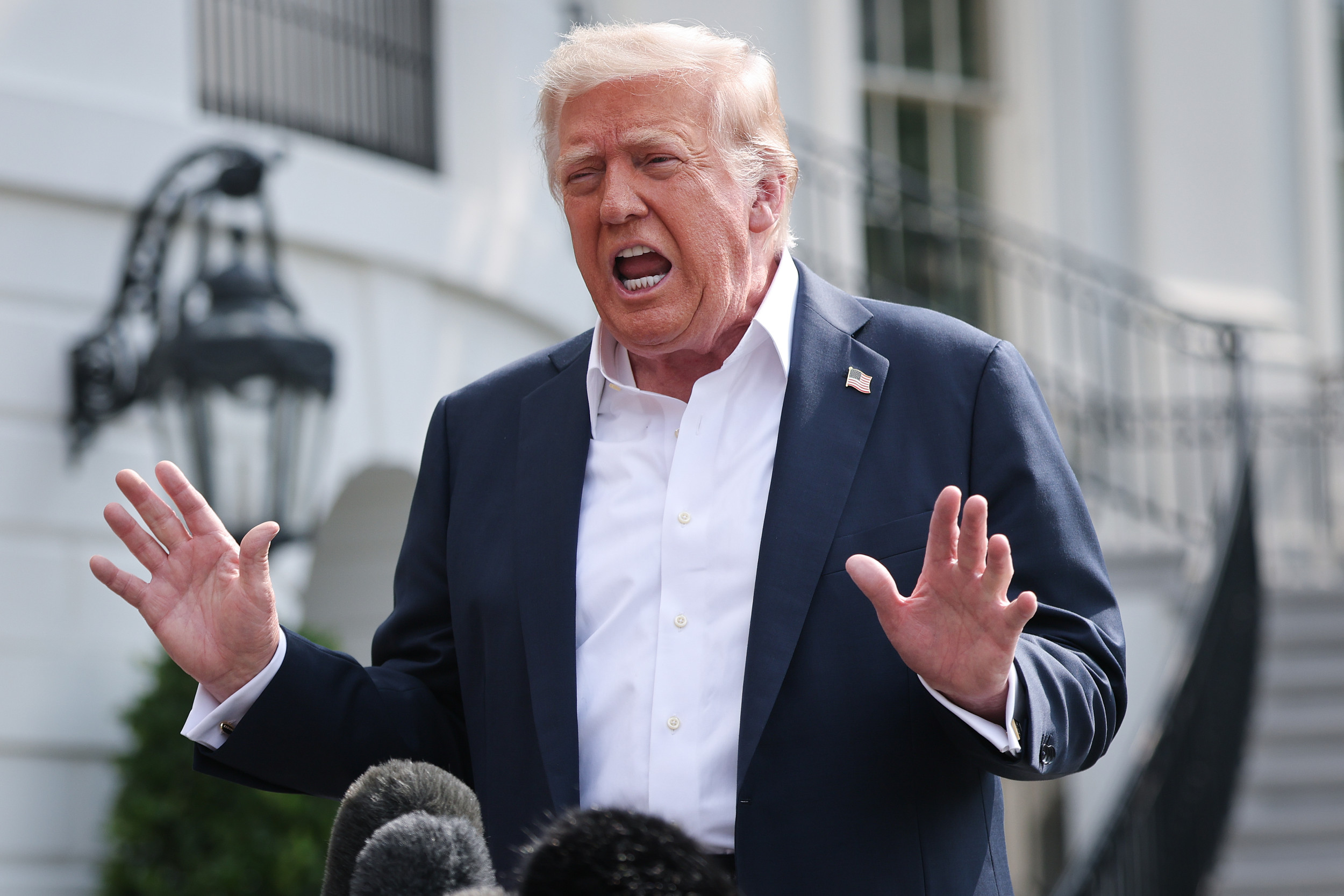URGENT UPDATE: President Donald Trump has filed a staggering $10 billion lawsuit against the Wall Street Journal, escalating tensions between the former president and major media outlets. The lawsuit, announced earlier today, comes in response to a controversial report involving Jeffrey Epstein, highlighting a birthday card Trump allegedly sent to Epstein. This development marks a significant moment in Trump’s ongoing battle against the press.
The Wall Street Journal, owned by Trump supporter Rupert Murdoch, published details that Trump claims are “fake news.” The card purportedly features Trump’s signature on a woman’s body, echoing his past remarks about being able to “grab” women whenever he liked. Trump’s reaction underscores his contentious relationship with the media, as he continues to silence criticism and exert control over narratives.
Trump’s lawsuit represents a continuation of his strategy to intimidate media outlets into compliance. This is not the first time he has targeted press organizations; he has previously extorted millions from ABC, CBS, and Facebook through legal threats. The implications of this lawsuit extend beyond just the Wall Street Journal, raising questions about the future of media freedom under Trump’s influence.
As the legal battle unfolds, observers are left wondering how Trump’s staunch supporters will respond. Will they stand by him as he takes on yet another media giant? The outcome could reshape the landscape for journalism in America as Trump continues to leverage his political power against critical voices.
The lawsuit adds to a growing list of legal challenges Trump has initiated against various media entities, creating a chilling effect on reporting. With the Wall Street Journal now in his crosshairs, the stakes are higher than ever. If Trump prevails, it may embolden him to pursue further actions against other outlets that dare to challenge him.
Trump’s tactics echo historical patterns of authoritarianism, where the government is used as a weapon against dissent. His previous actions have included threatening PBS with funding cuts and manipulating CBS through regulatory pressures. The question remains: how far will Trump go to silence critics, and can the Wall Street Journal withstand the storm?
Critics argue that Trump’s lawsuit is yet another attempt to undermine the press and stifle free speech. As the situation develops, media analysts are closely monitoring the potential repercussions for journalistic integrity in the face of such overwhelming pressure.
Next steps include a court hearing where Trump’s claims will be evaluated. All eyes are on the Wall Street Journal and its response to this lawsuit. The unfolding scenario may serve as a litmus test for other media organizations facing similar threats. How will they balance the need for accountability and the right to report freely?
This lawsuit represents a pivotal moment for both Trump and the media landscape in America. As tensions rise, the public’s response will be crucial. Will Americans rally against this apparent assault on journalism, or will they remain silent as the press faces unprecedented challenges? The coming days will reveal much about the future of free expression in the country.
